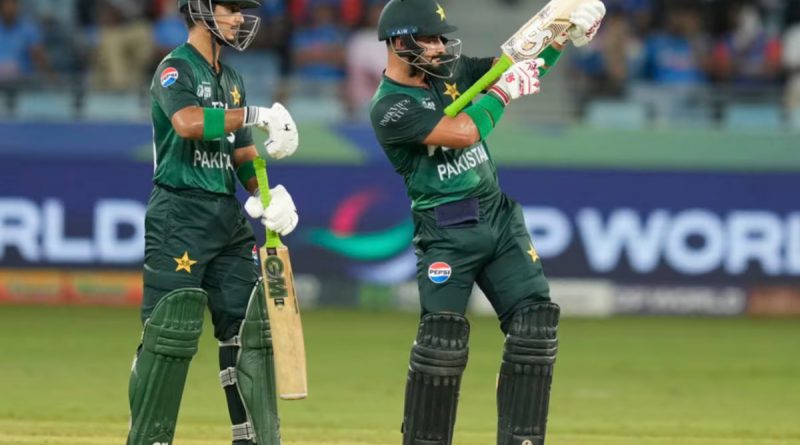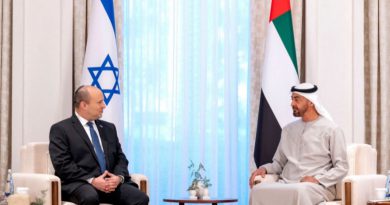When Bats Become Guns: Pakistani Cricket’s Radical Symbolism
It was interpreted, and often celebrated, as the echo of a much larger frenzy that commemorates and normalises violence against Hindus.
Pakistan opener Sahibzada Farhan has found himself at the center of fresh controversy after his explosive 58 off 45 balls against India in the Asia Cup 2025 Super Four. His half-century celebration, mimicking an AK47-firing action with his bat, set off a storm. The gesture, performed moments after he dispatched Axar Patel for six to bring up his fifty, was instantly polarizing.
Some hailed it as audacious. Many condemned it as provocative. Farhan himself defended it as nothing more than a spontaneous act he “does not care to over-explain.”
At first, I dismissed the idea of writing on this episode. At first sight this problematisation of his act appeared nothing more than a Hindu right-wing frenzy and a product of jingoism. But when I turned to the Pakistani discourse around it, I was jolted.
What I had imagined to be a lone, reckless gesture of a cricketer was in fact celebrated as a collective act of defiance against “Kafir Hindus.” Across the spectrum, with sensible exceptions of course, Pakistanis were glorifying him as a lion who had put Indians in their place. A hero who had demonstrated that if killing could happen in Pahalgam, it could happen anywhere.
The celebration was not of an individual’s defiance but of a deeper national consciousness. It is a consciousness that has always defined itself in negation, sustained by the singular idea that “we are not Hindus.” That founding negation continues to fuel Pakistan’s politics, its nationalism, and, as I saw, even its cricketing pride.
I was surprised, though not shocked, to hear such views. The very idea of Pakistan is voluntarist in nature. It was not founded on a shared language, culture, or territory, but on the deliberate assertion of religion as the sole basis of nationhood. In such a framework, every sphere of public life is inevitably tethered to religion. Nothing escapes the grip of the mullahs.
Even a cricket pitch, which elsewhere might be a space for sport and competition, becomes in Pakistan a stage for propagating anti-human, exclusionary and supremacist ideologies. This collapse of the boundary between religion and public life is not incidental. It renders even the most ordinary gestures freighted with political and sectarian meaning.
In the aftermath of the Pahalgam massacre, which killed 26 tourists on April 22, 2025, India accused Pakistan of sponsoring cross-border terrorism. The atmosphere between the two states was volatile. In that context, a celebratory gesture by a Pakistani cricketer on the pitch cannot be read as an innocent, isolated act. It was interpreted, and often celebrated, as the echo of a much larger frenzy that commemorates and normalises violence against Hindus.
Let us be blunt. 26 people were murdered because they were Hindus. To call this anything other than a crime driven by communal motive is to obscure the reality of targeted violence. If calling this Islamophobia alarms some, then so be it. Naming hatred clearly is the first step to fighting it. To fight for a just world, we must insist on that clarity.
Even if we assume the cricketer’s gesture was not meant to signal more than individual bravado, what matters is what the masses took from it. In the wake of the Pahalgam massacre, a jubilant or triumphalist response on the pitch could not be read as innocent. It became a public echo of a wider, sectarian celebration that normalises violence against Hindus.
The executive deserves blame as well. Despite nationwide protests and heightened sensitivities after the attack, authorities allowed the match to proceed. It was a failure of accountability that made the pitch a stage for humiliation rather than for sport.
The spectacle mattered because it showed how national identity in Pakistan is repeatedly remade through negation and ritualised hostility. It is a politics rooted in the two-nation idea that defines Pakistan as “not Hindu.”
If the only way some political communities can sustain themselves is by staging childish, violent affirmations of identity, then those identities are brittle and dangerous. They must be dismantled if we are to imagine a region where public life is not a theatre of hatred.
Disclaimer: Views expressed by writers in this section are their own and do not reflect Milli Chronicle’s point-of-view.



